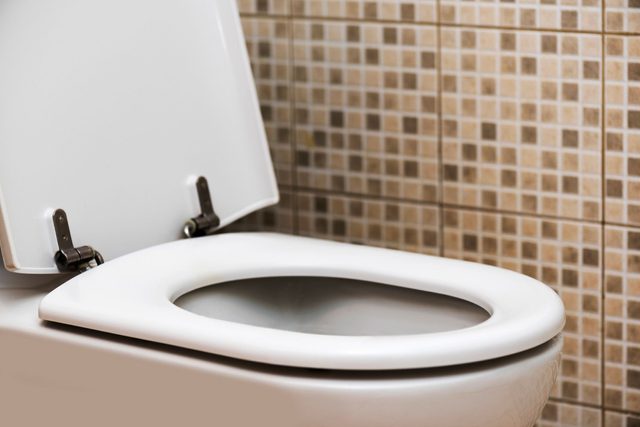
You learn you’re anemic
Colon cancer is one of the most common cancers in Canada. A diagnosis of anemia may be the first sign that you’re bleeding internally, even if you haven’t seen any other colon cancer symptoms. “If a woman is menstruating, anemia is less likely to be followed up with additional tests to see if it could be something else, like colon cancer,” says Randall Holcombe, MD, chief medical officer, cancer, at Mount Sinai Health System in New York City. “If a man is anemic, you assume he’s bleeding from somewhere.” It’s not uncommon for people to bleed internally for up to six months before anything shows up in the stool, says Patricia Raymond, MD, a fellow at the American College of Gastroenterology. If you experience any signs of anemia, such as fatigue, skin pallor or dizziness, see a doctor; these can also be colon cancer symptoms.

You can’t catch your breath
Another side effect of a slow internal bleed is shortness of breath. If you aren’t bleeding aggressively or vomiting blood, your body puts more plasma in the blood without making more iron or red blood cells, says Dr. Raymond. This prevents you from losing blood in large volumes but reduces blood’s ability to carry oxygen, which is why you might notice shortness of breath, one of the overlooked colon cancer symptoms. Make sure to include these foods in your diet to help fight off colon cancer.

You feel bloated or crampy
“If things are starting to get blocked and backed up in the colon, you may experience bloating,” says Dr. Holcombe. If you’re feeling a little puffy or crampy, there are many other factors that may be to blame, but if stomach symptoms persist, it could be a symptom of colon cancer. See your doctor. If you start to notice a constant pain in the right side of your abdomen, that may mean the disease in the later stages and has spread to the liver, he says. Watch for these signs your upper abdominal pain could be an emergency.

You have severe constipation
A bout of constipation here and there is probably nothing to worry about, but if it becomes severe and persistent, it could be one of the symptoms of colon cancer. “This is something that is suggestive of some sort of obstruction, and if it seems to be there all the time you should get it checked out,” says Dr. Holcombe. Learn some other causes of constipation that aren’t colon cancer.

You pass skinny stool
Pay attention to what’s in the toilet, even if you don’t see blood—it can reveal lesser-known colon cancer symptoms. If your stool consistently takes on a very narrow or skinny shape when it was previously chunkier, that could point to a restriction in the colon caused by polyps, says Dr. Raymond. Persistent diarrhea may also be one of the symptoms of colon cancer. Read up on these weird pooping habits that can be explained by science.

Your stool is a weird colour
Bleeding from the rectum may not always come in the form of bright red blood, says Dr. Holcombe. Dark, tarry stools are a sign there’s probably some blood in there, and while it could be caused by something less serious, like an ulcer, this can also be one of the symptoms of colon cancer, he says.
